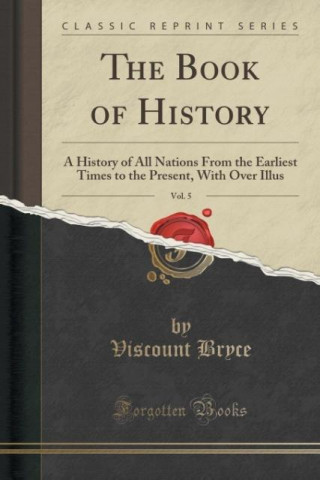
Kód: 12036135
The Book of History, Vol. 5
Autor Viscount Bryce
Excerpt from The Book of History, Vol. 5: A History of All Nations From the Earliest Times to the Present, With Over Illus By far the best known of all Oriental u peoples are the tribes which form the last components of the sec ... celý popis
- Jazyk:
 Angličtina
Angličtina - Väzba: Brožovaná
- Počet strán: 448
Nakladateľ: Forgotten Books, 2015
- Viac informácií o knihe

29.13 €
Dostupnosť:
50 % šanca Máme informáciu, že by titul mohol byť dostupný. Na základe vašej objednávky sa ho pokúsime do 6 týždňov zabezpečiť.
Máme informáciu, že by titul mohol byť dostupný. Na základe vašej objednávky sa ho pokúsime do 6 týždňov zabezpečiť.Prehľadáme celý svet
Mohlo by sa vám tiež páčiť
-

Exploring Sentencing Practice in England and Wales
76.99 € -
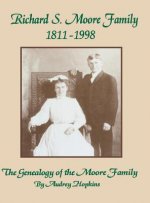
Richard S. Moore Family
57.46 € -3 % -

Home Is Where the Heart Is
18.81 € -

The Prisoner of Zenda
38.03 € -

The Marshmallow Man
13.28 € -1 % -

The Miracle of Dunkirk
38.03 € -
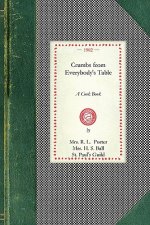
Good Things to Eat, Suggested by Rufus: A Collection of Practical Recipes for Preparing Meat, Game, Fowl, Fish, Puddings, Pastries, Etc.
14.61 € -
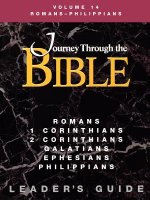
Jttb
15.64 € -3 % -

Rain Falls Like Mercy
23.51 € -

Fifi Breaks Her Leg
36.70 € -
![Health Assessment & Physical Examination Package [With Lab Manual] Health Assessment & Physical Examination Package [With Lab Manual]](https://media.libris.to/jacket/jacket_skt.jpg)
Health Assessment & Physical Examination Package [With Lab Manual]
228.14 € -

Sweetie Ladd's Historic Fort Worth
39.36 € -4 % -

Milwaukee Woman's Life on the Left: The Autobiography of Meta Berger
19.11 € -

Malibu
25.86 € -1 %
Darujte túto knihu ešte dnes
- Objednajte knihu a vyberte Zaslať ako darček.
- Obratom obdržíte darovací poukaz na knihu, ktorý môžete ihneď odovzdať obdarovanému.
- Knihu zašleme na adresu obdarovaného, o nič sa nestaráte.
Informovať o naskladnení knihy
Zadajte do formulára e-mailovú adresu a akonáhle knihu naskladníme, zašleme vám o tom správu. Postrážime všetko za vás.
Viac informácií o knihe The Book of History, Vol. 5
Nákupom získate 72 bodov
 Anotácia knihy
Anotácia knihy
Excerpt from The Book of History, Vol. 5: A History of All Nations From the Earliest Times to the Present, With Over Illus By far the best known of all Oriental u peoples are the tribes which form the last components of the second great Semitic migration of the Nearer East. These are the Hebrew tribes, whose home, the farthest toward the desert, would in itself indicate that they came as the last of the great "Canaanite" migration, driven on by the precursors of the next, the Aramćan. These are the tribes which combined themselves into the people of Israel, and their neighbours who dwelt still further toward the desert, the Edomites, Moabites, and Ammonites. The Tell el-Amama letters prove the advance of Hebrew tribes in the land as early as the fifteenth century B.C.; one nation in particular comes prominently forward, which expanded from the north - namely, the Amorites. These appear to the Israelites, in the writing which presents the oldest form of their tradition, as the inhabitants from whom they must wrest the land; when the Israelites marched in, the former had already become occupants instead of immigrants. We may thus regard the Israelites as the next stratum after the Amorites, and may place their immigration somewhat ater. The earliest mention of Israel is contained in an inscription of the Pharaoh Meneptah II., about 1200 B.C. Whether that is, however, the tribal federation which we understand by this name, or some forgotten tribe, of which no record is left in Biblical tradition except the name of the collection of tribes banding round it and its sanctuary, must remain at present an unsolved question. Within recent years much progress has been made in the true understanding and interpretation of the books of the Bible which have come down to us, and it has been demonstrated that the Biblical narrative is of a more composite character than had formerly been supposed, and embodies traditions of widely different origin and value. Historical criticism assumes that the Biblical narratives are to be treated as human documents, and are to be submitted to the same critical tests which are applicable to all other records of antiquity. It will, of the course, on the other hand, be maintained that such methods are invalid when applied to the sacred narrative, and that any conclusions reached thereby must be rejected. From that point of view any historic account that deviates from the Biblical narrative will be repudiated. The historical, or, as they should rather be termed, narrative books of the Bible, in the form in which they are now extant, are the work of a late period. The peculiar nature of the use made in antiquity of separate documents allows us to dissect the books into their component parts, so that we are in a position to distinguish the different authorities with some confidence, and to weigh the evidence of one against another. The result of this division of sources, which is most apparent in the Pentateuch, is as follows. Two ancient documentary writings, designated, according to the name used for God by their respective writers, as Elohist and Jehovist, had been combined in very early times. The writing Elohist is indeed the more ancient, because it alone still preserves recollections of the actual conditions of remote antiquity. About the Publisher Forgotten Books publishes hundreds of thousands of rare and classic books. Find more at www.forgottenbooks.com
 Parametre knihy
Parametre knihy
29.13 €
- Celý názov: The Book of History, Vol. 5
- Podnázov: A History of All Nations From the Earliest Times to the Present, With Over Illus (Classic Reprint)
- Autor: Viscount Bryce
- Jazyk:
 Angličtina
Angličtina - Väzba: Brožovaná
- Počet strán: 448
- EAN: 9781330353837
- ISBN: 1330353838
- ID: 12036135
- Nakladateľ: Forgotten Books
- Hmotnosť: 596 g
- Rozmery: 229 × 152 × 24 mm
- Dátum vydania: 24. June 2015
Obľúbené z iného súdka
-

Dune
13.08 € -

Haunting Adeline
30.77 € -

Berserk Deluxe Volume 2
52.66 € -

White Nights
3.57 € -24 % -

Powerless
12.47 € -4 % -

Atomic Habits
15.94 € -15 % -

Dune Messiah
8.99 € -20 % -

Berserk Deluxe Volume 3
52.86 € -

One Day
12.57 € -13 % -

Berserk Deluxe Volume 1
44.37 € -13 % -

Iron Flame
16.25 € -19 % -

Surrounded by Idiots
11.75 € -21 % -

Harry Potter and the Prisoner of Azkaban (Minalima Edition)
27.81 € -32 % -

Gravity Falls Journal 3
22.08 € -

Heaven Official's Blessing: Tian Guan Ci Fu (Novel) Vol. 1
21.46 € -

The Creative Act
26.17 € -5 % -

Dune
9.70 € -19 % -

Hunting Adeline
31.79 € -

A Little Life
17.48 € -

Children of Dune
8.78 € -22 % -

Heaven Official's Blessing: Tian Guan Ci Fu (Novel) Vol. 2
18.91 € -9 % -

Bungo Stray Dogs, Vol. 8 (light novel)
17.99 € -

Percy Jackson and the Olympians 5 Book Paperback Boxed Set
47.75 € -

Solo Leveling, Vol. 1
22.90 € -

The Prisoner's Throne
11.44 € -4 % -

Court of Thorns and Roses
9.30 € -22 % -

Cry Baby Coloring Book
10.93 € -3 % -
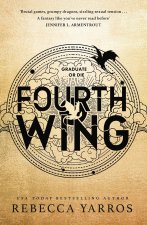
Fourth Wing
16.66 € -16 % -

Icebreaker
9.19 € -18 % -

Berserk Deluxe Volume 6
48.77 € -4 % -

Avatar, the Last Airbender: The Kyoshi Novels (Box Set)
27.50 € -33 % -

The 48 Laws of Power
26.89 € -1 % -

House of Leaves
23.20 € -4 % -

Twisted Lies
9.81 € -24 % -
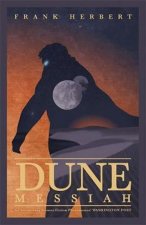
Dune Messiah
10.01 € -31 % -

No Longer Human
16.97 € -

48 Laws Of Power
22.59 € -5 % -

Twisted Games
9.40 € -22 % -

Caraval Paperback Boxed Set
39.77 € -8 % -

Solo Leveling, Vol. 2
22.39 € -

Open Circuits
34.45 € -16 % -

Berserk Deluxe Volume 5
51.33 € -

Heaven Official's Blessing: Tian Guan Ci Fu (Novel) Vol. 3
19.73 € -5 % -

Berserk Deluxe Volume 4
46.52 € -9 % -

Court of Mist and Fury
9.30 € -20 % -

SOLO LEVELING V08
22.39 € -

English File Upper Intermediate Multipack A (4th)
22.18 € -

CHAINSAW MAN V14
11.24 € -14 % -

Before the Coffee Gets Cold
9.09 € -16 %
Osobný odber Bratislava a 2642 dalších
Copyright ©2008-24 najlacnejsie-knihy.sk Všetky práva vyhradenéSúkromieCookies


 21 miliónov titulov
21 miliónov titulov Vrátenie do mesiaca
Vrátenie do mesiaca 02/210 210 99 (8-15.30h)
02/210 210 99 (8-15.30h)